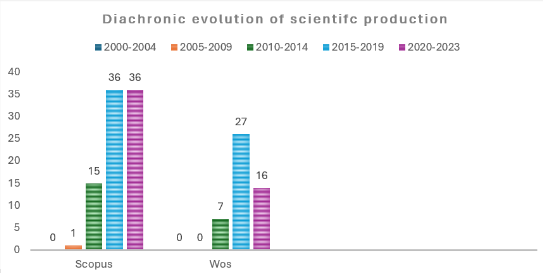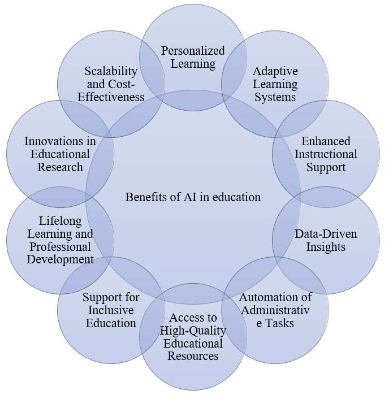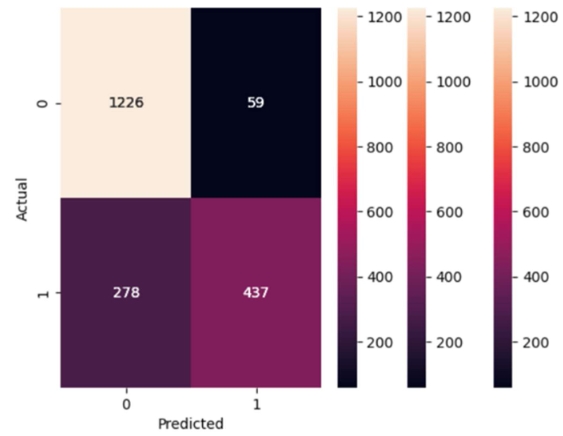Ethics in Nigerian higher education: Mirroring the dilemma in mass communication departments
Abstract
This study examines the application of ethical principles within Nigerian tertiary institutions, with a specific focus on mass communication departments, including journalism, public relations, and advertising, across selected higher education institutions. Utilizing an online questionnaire distributed to students and conducting interviews with lecturers, the research assesses the extent of ethical practices and their effects on both students and staff. This study critically reviews the existing literature on Nigeria’s higher education system, ethical awareness in higher education, and ethics implementation at the departmental level, guided by rule utilitarianism. The findings indicate that despite lecturers’ repeated efforts to educate students on the importance of upholding ethical values, exam malpractice remains the most prevalent ethical issue plaguing mass communication departments. It is recommended that ethical orientation begin in adolescence to shape the development of Nigerian youth. Additionally, ethics should be incorporated into the educational curriculum at all levels, from primary to tertiary education.
References
[1]Statista. Number of undergraduates. Statista; https://www.statista.com/ (2023; accessed 28 April 2023).
[2]Guanah JS. Assessment of Mass Communication Education in Mid-West Region; Nigeria. International Journal of Communication and Social Sciences 2019; 1: 77–97.
[3]Bakar ZA, Rabiu DK. The Effect of War to the Nigerian Educational Activities: A Systematic Review. Journal of Education and Learning (EduLearn) 2018; 12: 658–662.
[4]Nafziger EW. The Economic Impact of the Nigerian Civil War. The Journal of Modern African Studies 1972; 10: 223–245.
[5]Cirella GT, Iyalomhe FO, Adekola PO. Determinants of Flooding and Strategies for Mitigation: Two-Year Case Study of Benin City. Geosciences;9. Epub ahead of print 1 March 2019. DOI: 10.3390/geosciences9030136.
[6]Adedokun M, Abiodun-Oyebanji O. Impact of Infrastructure Provision on Poverty Alleviation in Nigerian Universities. In: Oni S (ed) Challenges and Prospects in African Education System. Bloomington: Trafford Publishing; 2013; pp. 740–750.
[7]Subair T, Okotoni C, Adebakin A. Perceived Quality of Infrastructure in Selected Nigerian Universities. Makerere Journal of Higher Education 2012;4:111–124.
[8]Ibrahim A, Alagbu N. Impact of Academic Staff Union of Universities (ASUU) Strike on Quality of University Education in Nigeria. ATBU Journal of Science; Technology and Education 2014;2:112–118.
[9]Offem OO, Anashie AI, Aniah SA. Effect of strikes on management and planning of educational activities in Nigerian universities. Global Journal of Educational Research 2018;17:1–8.
[10]Akpan-Obong P. Covid-19 and African E-Learning Systems: Structural and Institutional Strategies for Resilience and Antifragility. Journal of Information Policy. Epub ahead of print 1 February 2023. DOI: 10.5325/jinfopoli.13.2023.0001.
[11]Egielewa PE, Idogho PO, Iyalomhe FO, Cirella GT. COVID-19 and Digitized Education: Analysis of Online Learning in Nigerian Higher Education: E-Learning and Digital Media 2021;19:19–35.
[12]Okah PS, Iyiani CC, Aghedo GU. Salary Stoppage amidst COVID-19 Lockdown and Coping Strategies by Members of the Academic Staff Union of Universities (ASUU) in Nigeria. International Journal of Arts and Social Science 2022;5:171–180.
[13]Uchendu E, Nnabueze A, Onogwu E. Locked down During the Lockdown. Alliance for African Partnership Perspectives 2021;1:101–106.
[14]Oxford Analytica. Nigerian fiscal constraints will fuel academic strikes. Emerald Expert Briefings 2022;Expert Briefings.
[15]Olujuwon T, Oshinowo O, Udofia IGR. Assessment of academic ethics and integrity among Lecturers in rebuilding trust in Nigeria’s educational system. International Journal of Educational Research and Policy Making 2020;3:432–444.
[16]Adekola PO, Azuh DE, Amoo EO, et al. Economic Drivers of Voluntary Return among Conflict-Induced Internally Displaced Persons in Nigeria. Sustainability 2022;14:2060.
[17]Ayinde-Olawale AE, Ogunyemi IT, Cirella GT. Economic Shocks from COVID-19 and the Assessment of Micro-; Small-; and Medium-Sized Enterprises Emergence of Insurance Coverage in Urban South-West; Nigeria. In: Cirella GT (ed) Uncertainty Shocks in Africa: Impact and Equilibrium Strategies for Sound Economic and Social Development. Cham: Springer; pp. 45–63.
[18]Azuh DE, Adekola PO, Olawole-Isaac A, et al. Contraceptive Utilization Among Married Couples in Nigeria: Socio-cultural Factors. In: Cirella GT (ed) Uncertainty Shocks in Africa: Impact and Equilibrium Strategies for Sound Economic and Social Development. Cham: Springer; pp. 135–152.
[19]Nwabueze A, Oragwu A. Work Ethics and Effective Administrative Practices Among Principals of Secondary Schools in Enugu State. Review of Education 2020;30:249–263.
[20]Ukala CC, Nwabueze AI. Work ethics for skill acquisition. In: Ebong JM; Asodike JD (eds) Economics of education: Trends in Nigeria. Port Harcourt: Eagle Lithograph Publishers; 2016; pp. 87–99.
[21]Ajayi K, Adeniji A. Pursuing Discipline and Ethical Issues in Tertiary Institutions in Nigeria. African Research Review;3. Epub ahead of print 2009. DOI: 10.4314/afrrev.v3i1.43575.
[22]Omisore BO, Oyende AA. Work Ethics; Values; Attitudes and Performance in the Nigerian Public Service: Issues; Challenges and the Way Forward. Journal of Public Administration and Governance 2015;5:157–172.
[23]Hoy WK,; Tarter CJ, Kottkamp RB. Open Schools; Healthy Schools: Measuring Organizational Climate. In: . 1st edition. Newbury Park; Calif: Corwin Press/Sage Publications; 2005.
[24]Anyaogu RO. Ethical conduct among academic staff in Alvan Ikoku Federal College of Education: The Students’ Perception. African Journal of Educational Research and Development 2008;2:17–24.
[25]Parrish-Sprowl J. Ethical Issues in Development Communication. In: Moemeka AA (ed) Development communication in action building and participation. New York: University Press of America; 2000; pp. 203–204.
[26]Bewaji JAI, Adedara PB. Media Theory; Practice and Ethics ? a Textbook of Film and Television Studies. In: . Ibadan: Bright Integrated Publishers; 2017.
[27]Wimmer RD, Dominick JR. Mass Media Research: An Introduction. In: . 10th edition. Australia: Cengage Learning; 2013.
[28]Cirella GT, Mwangi S, Streltsova K, et al. Human Settlements: Urban Challenges and Future Development. In: Cirella GT (ed) Human settlements: Urbanization; smart sector development; and future outlook. Singapore: Springer; 2021.
[29]Cirella GT, Zerbe S. Sustainable water management and wetland restoration in settlements of continental-arid Central Asia. Bozen: Bozen University Press; 2014.
[30]Cirella GT, Zerbe S. Index of Sustainable Functionality: Application in Urat Front Banner. In: Cirella GT; Zerbe S (eds) Sustainable water management and wetland restoration in settlements of continental-arid Central Asia. Bozen: Bozen University Press; 2014; pp. 137–155.
[31]Egbujor MI. An appraisal of the ethical challenges in media in Nigeria. International Journal of Communication and Social Sciences 2019;1:158–174.
[32]Casimir KCA, Izueke EM, Nzekwe IF. Public Sector and Corruption in Nigeria: An Ethical and Institutional Framework of Analysis. Open Journal of Philosophy 2014;4:216–224.
[33]Ike OF. Education in the 21st Century. In: Proceeding of the Globethics Consortium on Ethics in Higher Education Inaugural Meeting Report; https://www.globethics.net (2017).
[34]Ike OF. Higher education in crisis: The role of ethics in private universities for nation building. Globethics; https://www.globethics.net (2019; accessed 15 April 2023).
[35]Schofield P. Utility and Democracy: The Political Thought of Jeremy Bentham. In: . Oxford; New York: Oxford University Press; 2006.
[36]RoundRanking. World University Rankings. RoundRanking; https://roundranking.com/ranking/world-university-rankings.html#world-2022 (2022; accessed 28 April 2023).
[37]Musa AZ. Ethical Issues and Teacher Education in Nigeria. ATBU Journal of Science; Technology & Education 2018;6:28–33.
[38]Ikechi KS, Akanwa UN. Unethical practices in the Nigerian educational system. Interdisciplinary Journal of Contemporary Research in Business 2012;4:451–464.
[39]Azuka EB. Academic Fraud Among Students in Higher Education in Nigeria: Reasons; Methods Adopted and Strategies to Curb It. Journal of Educational and Social Research 2014;4:289.
[40]Ezikeudu CC. Public Perception of the Structural Versus Individual Causes of Forgery in Nigeria: A Study of Age Falsification in Cross River State. International Journal of Academic Research in Business and Social Sciences 2019;9:147–161.
[41]Moreno JM. Something up the Sleeve: Fraud in Education; or the Learning of Corruption. Emotional and Behavioural Difficulties 1999;4:20–26.
[42]Odukoya OO, Samsudin RS. Knowledge Capability and Fraud Risk Assessment in Nigeria Deposit Money Banks: The Mediating Effect of Problem Representation. Cogent Business & Management 2021;8:1899450.
[43]Idhalama O, Osawaru K, Igbinovia M, Nwachukwu P. Scholarly Research Outputs and Vulnerability of Nigerian Lecturers to Predatory Journals. International Journal of Education; Arts and Social Issues in Africa 2024;1:34–51.
[44]Ojo OK, Ayandele O, Egbeleye SA. Euphemisms of Corruption Among Students of Higher Institutions in South West Nigeria. Journal of Language and Education 2020;6:72–82.
[45]Ofojebe WN. Ethical issues in Nigerian education: influence on effective management of colleges of education in Delta State. Nnaidebube Journal of Education in Africa 2019;3:62–76.
[46]Egielewa PE, Adejumo IM. Teacher-student communication during examination: An evaluation ethical issues of cooperation fees amongst secondary school finalist in Nigeria. Journal of Indo-Canadian Studies 2021;10:60–72.
[47]Yamane T. Statistics An Introductory Analysis. 2nd Edition: o: 7438630882438: Books. In: . New York: Harper and Row; https://www.amazon.com/Statistics-Introductory-Analysis-Taro-Yamane/dp/B0000CNPXC (1967; accessed 13 June 2022).
[48]Nwikina L. Fostering Ethical Behavior and Culture in Nigeria Schools. International Journal of Learning and Development 2013;3:26–36.
[49]Oluwasanu MM, Oladepo O, Ibitoye SE. Qualitative Views of Nigerian School Principals and Teachers on the Barriers and Opportunities for Promoting Students’ Physical Activity Behaviours Within the School Settings. BMC Public Health 2021;21:2302.
[50]Chen J, Liu Y, Dai J, Wang C. Development and Status of Moral Education Research: Visual Analysis Based on Knowledge Graph. Front Psychol 2023;13:1079955.
[51]Brodhead MT, Higbee TS. Teaching and Maintaining Ethical Behavior in a Professional Organization. Behav Anal Pract 2012;5:82–88.
[52]Paralta R, Simões E, Duarte AP. Subjective Well-Being in Organizations: Effects of Internal Ethical Context and Ethical Leadership. Int J Environ Res Public Health 2023;20:4451.
[53]Scarfino D, Schutte K, Comiskey C, Campbell T. Effects of Culture and Education on Ethical Responses on Our Global Society. Global Advances in Business Communication;1; https://commons.emich.edu/gabc/vol1/iss1/5 (2012).
[54]Beever J, Kuebler SM, Collins J. Where ethics is taught: an institutional epidemiology. International Journal of Ethics Education 2021;6:215–238.
[55]Marlatt R, Korang T. Prioritizing Ethics: Interdisciplinary Implementations of Principle-Based Ethics in Secondary Teacher Education. International Journal of Teaching and Learning in Higher Education 2020;32:499–518.
[56]Prashar A, Gupta P, Dwivedi YK. Plagiarism awareness efforts; students’ ethical judgment and behaviors: a longitudinal experiment study on ethical nuances of plagiarism in higher education. Studies in Higher Education 2024;49:929–955.
[57]Alnajjar HA, Abou Hashish EA. Academic Ethical Awareness and Moral Sensitivity of Undergraduate Nursing Students: Assessment and Influencing Factors. SAGE Open Nurs 2021;7:23779608211026715.
[58]Prisacariu A, Shah M. Defining the Quality of Higher Education Around Ethics and Moral Values. Quality in Higher Education 2016;22:152–166.
[59]Viswan SP, Ravindran TKS, Kandala NB, et al. Sexual autonomy and contraceptive use among women in Nigeria: findings from the Demographic and Health Survey data. International Journal of Women’s Health 2017;9:581–590.
[60]Joseph J, Berry K, Deshpande SP. Factors That Impact The Ethical Behavior Of College Students. CIER 2010;3:27–34.
[61]Borén S. Electric buses’ sustainability effects; noise; energy use; and costs. International Journal of Sustainable Transportation 2020;14:956–971.
[62]Blazar D, Kraft MA. Teacher and Teaching Effects on Students’ Attitudes and Behaviors. Educ Eval Policy Anal 2017;39:146–170.
[63]Ametrano IM. Teaching Ethical Decision Making: Helping Students Reconcile Personal and Professional Values. Journal of Counseling & Development 2014;92:154–161.
[64]Ahmadi R, Weisi H. A Phenomenological Inquiry into Students’ Research Practice Experiences in Iran’s Higher Education: Special Focus on Supervisor-Student Relationships. Studies in Higher Education 2023;1–14.
Copyright (c) 2024 Blessed F. Ngonso, Peter E. Egielewa, Giuseppe T. Cirella

This work is licensed under a Creative Commons Attribution 4.0 International License.









